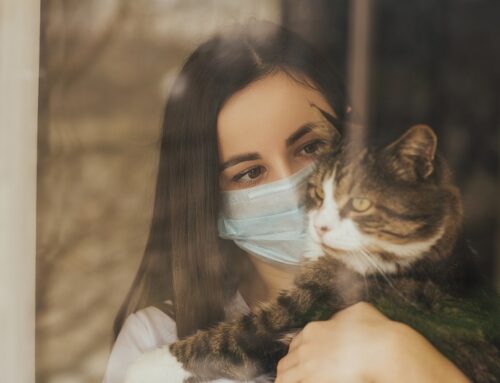Kitten season is here once again, so for this month, we are going to review kitten veterinary health basics. Most kittens go to a new home at 6 – 8 weeks of age, and most (unless they come from a shelter or reputable breeder) have not had any previous veterinary care. So, what veterinary care does your new kitten need?
Firstly, if there are any cats or kittens already in your household, we always recommend ANY new kitten be quarantined in a separate room for a week, even if they come from a breeder or shelter. This is to help deter the possible spread of any potential contagious disease between the house cat(s) and the new kitten. Going to a new home is very stressful on cats and kittens, even if they don’t always show it. This means that kittens who appear healthy can “suddenly” become sick within a few days of coming home. It is also not unusual for household cats to become sick after a new kitten is introduced, even if the kitten does not appear sick. It is also best to not let a new kitten share a litterbox with any resident cats until they have been confirmed clear of any intestinal parasites (i.e., worms).
All new kittens should have a veterinary examination as soon as possible. If your new kitten comes from a local shelter, they will get their first exam for free within the first 30 days after adoption. If you have any previous records, always bring those to the first appointment so that any previous procedures (vaccines, deworming, etc.) can be put into their file.
So, what should you expect at your kitten’s veterinary checkup? Depending on your kitten’s age, most first veterinary visits will include: a full examination, a discussion about kitten care at home, the first distemper vaccine, the first deworming, and a blood test to check for feline leukemia (FeLV) and feline AIDS (FIV). If your kitten comes from a shelter or breeder and has already been dewormed, then a stool sample will be checked to confirm that they are clear of parasites. Thereafter, kittens should receive an examination and booster vaccine every 4 weeks, until they reach 16 weeks of age. For most kittens, this will mean a series of 3 distemper vaccinations. The first rabies vaccine is given at or after 12 weeks of age. If a kitten will be going outside when it is older, then they should also receive a feline leukemia vaccine at (or around) 12 weeks-old and again at 16 weeks-old. All vaccines should be given a booster one year later.
Kittens should be spayed or neutered at around 4 months-old (16 weeks). Females generally will not come into heat, and males generally will not start spraying until 6 months-old. Even if your kitten is going to be an outdoor “barn cat”, they should be spayed and neutered. This will not affect their hunting ability but will decrease fights with other outdoor cats and prevent unwanted kittens.
With proper veterinary care, your kitten should grow into a happy, healthy cat and be your feline family member for many years. As always, if you have any questions or concerns about your cat or kitten, please call or e-mail the clinic.
Thanks for reading! =^_^=








